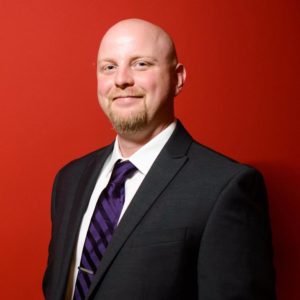 CS for CLE teacher brings computer science to most at-risk students; Students who normally fail are succeeding with computer science
CS for CLE teacher brings computer science to most at-risk students; Students who normally fail are succeeding with computer science
Jeff Rhodes is what his students at North Royalton High School call “chill.”
He’s the kind of teacher who allows students to play music, even rap. And it can be loud.
He’s an industrial arts teacher, but his is no ordinary make a wooden lamp kind of class.
He works hard to link everything he does to real careers his students can explore.
He wants them to see that there’s life and interesting careers after North Royalton High School.
“I’m a little old school, a little new school,” Rhodes said. “I teach traditional shop classes like welding and machining for career skills and higher level classes like engineering and CS for students looking to start preparing for college early.”
Rhodes is one of several teachers the NeoStem Ecosystem will be featuring for their efforts to reach their students.
Rhodes works with some of the schools’ most at-risk population – students who are likely to drop out or flunk out before graduating.
“My whole goal is to get them to see that there are interesting careers out there,” he said.
For the last year, Rhodes has been immersing himself and his students in computer science.
A new course at the school, exploring computer science, is already showing success at reaching students in ways that other courses fail. Of the 55 students enrolled in this course, the lowest grade is a C and only one student has a C. All others are passing it with great grades and attitudes.
And what’s more, Rhodes said that the course, focused on problem solving and programing, has ignited in many a desire to learn more in a post-high school setting.
Rhodes has been working with CSforCLE, an initiative to equip all students with basic computer science and computational thinking skills so that they can become successful and active participants in the digital economy. He’s also active with CSforCLE Teachers and has joined Cleveland State University’s Nigamanth Sridhar, who has been leading professional development workshops for teachers from throughout the area who are committed to bringing computer science to their students.
Next year, the school will offer the course, “Computer Science Principals.”
The main mission of CS for CLE is to expand computer science into each classroom.
He has been attending several week-long professional development sessions and Saturday trainings with other ECS/CSP teachers. “My main work with expanded CS has been updating the ECS curriculum and making it accessible to a Google classroom format.
“My philosophy has been to help my colleagues in understanding and delivering the curriculum,” he said.
Rhodes said the professional development has been extremely valuable. “Without professional development like Dr. Sridhar’s, I could not be teaching the classes as successfully as I am now,” he said.
In addition to the support from the CSforCLE initiative, Rhodes relies on community volunteers who come into his classroom through the TEALS (Technology Education and Literacy in Schools) program to offer their expertise in a hands-on way with students.
TEALS is helping high schools throughout the U.S. build and grow sustainable computer science programs. In its proven program, TEALS, founded by Microsoft and supported locally by the Cleveland Foundation, pairs trained computer science professionals from across the technology industry with classroom teachers to team-teach computer science.
Rhodes said volunteers from such businesses as Key Bank and Hyland software have helped students truly identify with computer science concepts as well as the simple idea that there are good careers associated with the field.
